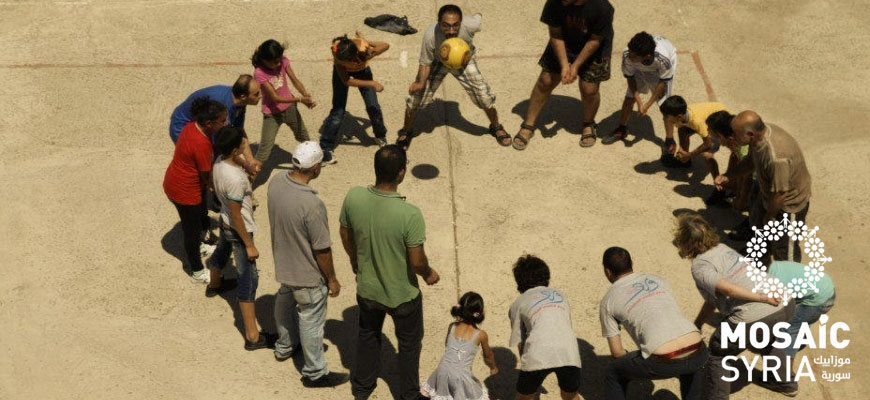The Amal (Hope) Initiative aims to support local grassroots activists working on integrating Syrian children in their new communities, and on offering psychological and emotional support to help them adapt to their current situation through health, entertainment, educational and social activities. We work with social workers, educators and mental health professionals to provide safe spaces where children they can be children and hope for a brighter future.
As a result of the ongoing conflict in Syria, many children and young people have found themselves having to cope with circumstances unimaginable for most. Children make up 52 per cent of the total Syrian refugee population, which now stands at over 2.2 million. 75 percent of them are under the age of 12. This is Syria’s ‘generation of innocents’, with little access to education and to a safe environment in which to play with their peers.
Due to the displacement from their homes and communities that they have experienced, and to the violence they have witnessed, children have had to cope with fear, anxiety and depression. Many have shown incredible resilience as they travelled unaccompanied to find work or safety, or accepted the responsibility of having to fend for themselves and their younger siblings.
They all have to face the anxiety of an uncertain future, and many have to cope with the stress of having lost at least one close family member, sometimes killed before their own eyes.
As of November 2013, there are over 831,000 Syrian refugees in Lebanon (registered or awaiting registration), which equals to almost every fifth person in the country. Despite the best efforts of many Lebanese people to assist the newcomers, the strain on housing and services has contributed to rising tension: for children living in the affected communities, this added further to the stress of displacement.
Isolation can also be a problem, as many parents prefer to keep their children at home, fearing for their safety in unfamiliar surroundings.
There is, therefore, an urgent need to provide safe spaces for children to play, be with their friends, and share their experiences. Spaces where they can regain a sense of normalcy in their lives.
Mosaic has currently partnered with the Ward (Flower) Team to deliver a project in Al-Qalamoun, Northern Lebanon. More information and updates will soon be available on our blog.
In numbers…
Families torn apart
•In Lebanon, 2440 children live without their parents, either with other family members or with no care-givers at all
•As of 30 September 2013, there were 36,622 Syrian female-headed households in Lebanon. Not only are fathers absent; many children have no idea where they are
Breadwinners
•80 per cent of Syrian refugee children in Lebanon are not in school
•One in ten Syrian refugee children in the region is engaged in child labour – children are more exposed to exploitation and dangerous forms of labour in urban and rural areas than inside camps
Isolated and discriminated against
•UNHCR researchers asked 106 children across Lebanon and Jordan how often they left home; 29 per cent answered once a week or less, and seven said only once a month
•Many refugee children have reported bullying, verbal and even physical abuse in schools by either teachers or peers
(source: UNHCR, “The Future of Syria”, 27 November 2013).


 عربي
عربي